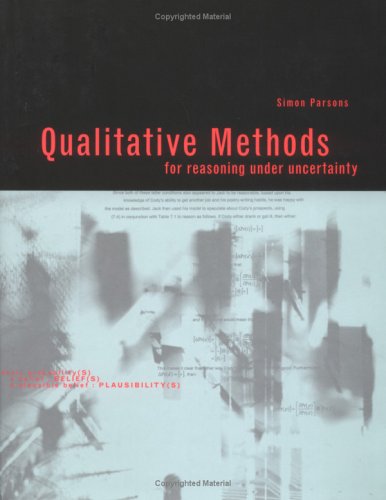qualitative methods reasoning under von parsons simon (8 Ergebnisse)
Suchfilter
Produktart
- Alle Product Types
- Bücher (8)
- Magazine & Zeitschriften (Keine weiteren Ergebnisse entsprechen dieser Verfeinerung)
- Comics (Keine weiteren Ergebnisse entsprechen dieser Verfeinerung)
- Noten (Keine weiteren Ergebnisse entsprechen dieser Verfeinerung)
- Kunst, Grafik & Poster (Keine weiteren Ergebnisse entsprechen dieser Verfeinerung)
- Fotografien (Keine weiteren Ergebnisse entsprechen dieser Verfeinerung)
- Karten (Keine weiteren Ergebnisse entsprechen dieser Verfeinerung)
- Manuskripte & Papierantiquitäten (Keine weiteren Ergebnisse entsprechen dieser Verfeinerung)
Zustand Mehr dazu
- Neu (2)
- Wie Neu, Sehr Gut oder Gut Bis Sehr Gut (1)
- Gut oder Befriedigend (2)
- Ausreichend oder Schlecht (Keine weiteren Ergebnisse entsprechen dieser Verfeinerung)
- Wie beschrieben (3)
Einband
Weitere Eigenschaften
- Erstausgabe (Keine weiteren Ergebnisse entsprechen dieser Verfeinerung)
- Signiert (Keine weiteren Ergebnisse entsprechen dieser Verfeinerung)
- Schutzumschlag (Keine weiteren Ergebnisse entsprechen dieser Verfeinerung)
- Angebotsfoto (Keine weiteren Ergebnisse entsprechen dieser Verfeinerung)
Sprache (2)
Gratisversand
Land des Verkäufers
Verkäuferbewertung
-
Qualitative Methods for Reasoning under Uncertainty
Anbieter: Better World Books, Mishawaka, IN, USA
Zustand: Very Good. Former library book; may include library markings. Used book that is in excellent condition. May show signs of wear or have minor defects.
-
Hardcover. Zustand: Good. No Jacket. Pages can have notes/highlighting. Spine may show signs of wear. ~ ThriftBooks: Read More, Spend Less 3.75.
-
Sonderangebot
EUR 6,99
EUR 22,50 für den Versand von Frankreich nach USAAnzahl: 1 verfügbar
In den WarenkorbHardcover. Zustand: Très bon. Ancien livre de bibliothèque. Edition 2001. Ammareal reverse jusqu'à 15% du prix net de cet article à des organisations caritatives. ENGLISH DESCRIPTION Book Condition: Used, Very good. Former library book. Edition 2001. Ammareal gives back up to 15% of this item's net price to charity organizations.
-
Qualitative Methods For Reasoning Under Uncertainty
Anbieter: Romtrade Corp., STERLING HEIGHTS, MI, USA
Zustand: New. This is a Brand-new US Edition. This Item may be shipped from US or any other country as we have multiple locations worldwide.
-
Qualitative Methods for Reasoning Under Uncertainty
Anbieter: Majestic Books, Hounslow, Vereinigtes Königreich
EUR 67,86
EUR 7,35 für den Versand von Vereinigtes Königreich nach USAAnzahl: 1 verfügbar
In den WarenkorbZustand: Used. pp. xviii + 506 Illus.
-
Qualitative Methods for Reasoning Under Uncertainty
Anbieter: Biblios, Frankfurt am main, HESSE, Deutschland
Zustand: Used. pp. xviii + 506.
-
Qualitative Methods for Reasoning under Uncertainty
Anbieter: Revaluation Books, Exeter, Vereinigtes Königreich
EUR 88,28
EUR 14,14 für den Versand von Vereinigtes Königreich nach USAAnzahl: 1 verfügbar
In den WarenkorbPaperback. Zustand: Brand New. 528 pages. 9.25x7.50x1.25 inches. In Stock.
-
Qualitative Methods for Reasoning Under Uncertainty
Verlag: MIT Press (2001), Cambridge [MA], 2001
Anbieter: Expatriate Bookshop of Denmark, Svendborg, Dänemark
orig.cloth Minor rubbing. An ink mark to top page-edge. VG. 24x15cm, xviii,506 pp "In this book Simon Parsons describes qualitative methods for reasoning under uncertainty, "uncertainty" being a catch-all term for various types of imperfect information. The advantage of qualitative methods is that they do not require precise numerical information. Instead, they work with abstractions such as interval values and information about how values change. The author does not invent completely new methods for reasoning under uncertainty but provides the means to create qualitative versions of existing methods. To illustrate this, he develops qualitative versions of probability theory, possibility theory, and the Dempster-Shafer theory of evidence. According to Parsons, these theories are best considered complementary rather than exclusive. Thus the book supports the contention that rather than search for the one best method to handle all imperfect information, one should use whichever method best fits the problem. This approach leads naturally to the use of several different methods in the solution of a single problem and to the complexity of integrating the results - a problem to which qualitative methods provide a solution" - Publisher's description. Minor rubbing. An ink mark to top page-edge. VG.




